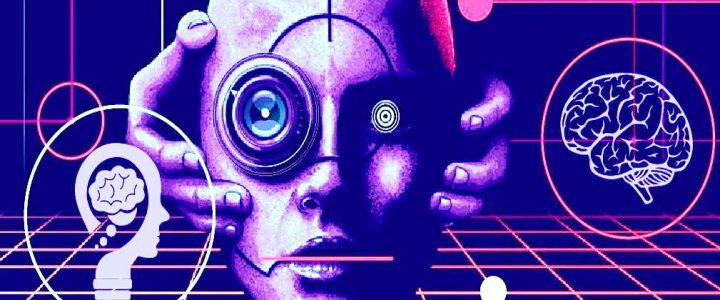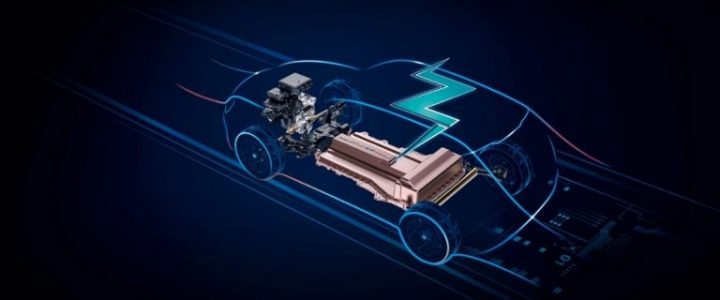“Once a Tor Vergata University Engineer, always a Tor Vergata University Engineer”


| Computer Vision – 6 CFU | ||
| didatticaweb | ||
| arianna.mencattini@uniroma2.it | ||
| +39 06 7259 7368 | ||
| Office Location |
Dip.to di Ingegneria Elettronica |


—> This Block is conceived for students willing to cover the main aspects of mechanics and electronics exclusively. Students with a background other than Engineering Sciences or Systems Engineering, Electronics, or Mechanics might be interested in choosing this block.
| Year | sem | SPECIFIC SUBJECTS – Block E |
CFU | SSD | class hours |
| 1 | I | INNOVATIVE MATERIALS WITH LABORATORY | 6 | ING-IND/21 | 60 |
| 1 | II | MECHANICS OF MATERIALS AND STRUCTURES | 6 | ICAR/08 | 60 |
| 1 | II | ELECTRONIC INTERFACES | 6 | ING-INF/01 | 60 |
| 2 | II | CONTROL OF ELECTRICAL MACHINES | 6 | ING-INF/04 | 60 |
| TOTAL ECTS |
24 |

—> This block is conceived for eager students of Mechatronics Engineering coming from Engineering Sciences or Systems Engineering who are willing to complete their knowledge by acquiring advanced mathematical skills and computing capabilities.
Besides a first advanced course in mathematical analysis addressing complements of complex variable theory and elements of distribution theory, the block provides a second course introducing the Python exosystem for scientific computing along with a third course on data analysis and signal processing techniques for model fitting and parametric estimates or non-linear solving of inverse problems (such as image denoising, source separation, and PSF decomposition).
The fourth course will finally provide a solid knowledge of the theoretical background behind the main Machine Learning (ML) algorithms from Neural Networks to Reinforcement Learning, along with their application (by using the standard libraries in a Python environment) to open physical problems.
Block D aims to prepare professionals who can deal with complex design and managing problems using advanced mathematical tools, yet with an engineering attitude.
Professional opportunities involve R&D divisions in manufacturing or engineering companies that deal with complex computational problems or need advanced mathematical tools.
| Year | sem |
SPECIFIC SUBJECTS – Block D |
CFU | SSD | class hours |
| 1 | I | MATHEMATICAL METHODS FOR PHYSICS | 8 | FIS/02 | 80 |
| 1 | I | NUMERICAL METHODS FOR ASTROPHYSICS | 6 | FIS/05 | 60 |
| 2 | I | LABORATORY – CALCULUS | 4 | INF/01 | 40 |
| 2 | II | MACHINE LEARNING METHODS FOR PHYSICS | 6 | FIS/01 | 60 |
| TOTAL ECTS |
24 |

—> Dedicated to BS: Engineering Sciences, Systems Engineering, or Mechatronics Engineering
BLOCK C1 – MECHATRONICS SYSTEMS AND ICT – LEARNING AND COMMUNICATION
| Year | Sem | SUBJECTS Block C1 | CFU | SSD |
| 1 | I | INNOVATIVE MATERIALS WITH LABORATORY | 6 | ING-IND/21 |
| 2 | II | CONTROL OF ELECTRICAL MOTORS AND VEHICLES° | 6 | ING-INF/04 |
| One of the following: |
||||
| 1 | II | Digital Signal Processing | 6 | ING-INF/03 |
| 2 | II | Deep Learning and Applications° | 6 | ING-INF/01 |
| 2 | II | Identification and Neural Networks° (25-26) | 6 | ING-INF/04 |
| One of the following: |
||||
| 2 | I | Digital Communications | 6 | ING-INF/03 |
| 2 | Information Theory and Data Science | |||
| 2 | Multimedia Processing and Communication | |||
BLOCK C2* – MECHATRONICS SYSTEMS AND ICT – INTERCONNECTED ELECTRIC VEHICLE ENGINEERING
| Year | Sem | SUBJECTS Block C2 | CFU | SSD |
| 1 | II | INTEGRATED SOLUTIONS FOR SUSTAINABLE MOBILITY AND ENERGY PRODUCTION | 6 | ING-IND/08 |
| 2 | II | CONTROL OF ELECTRICAL MOTORS AND VEHICLES | 6 | ING-INF/04 |
| One of the following: |
||||
| 1 | I | On Board Energy Generation and Storage | 6 | ING-INF/01 |
| 1 | I | Wireless Electromagnetic Technologies | ING-INF/02 | |
| 2 | II | Radar and Localization° (25-26) | ING-INF/03 | |
| One of the following: |
||||
| 1 | II | Electric Propulsion | 6 | ING-IND/32 |
| 1 | II | Digital Signal Processing | ING-INF/03 | |
*Students coming from Engineering Sciences and choosing block C2 of Mechatronics Engineering are invited to replace Fluid Machinery with Electromagnetic Fields in their block D of the Engineering Sciences study plan.
° These exams will be activated from A.Y. 2025-26.
note for the Management Office

—> Dedicated to BS: Mechanical Engineering – Biomedical Engineering with a background in Mechanics
| SPECIFIC SUBJECTS – BLOCK B |
Year | sem | CFU | SSD | class hours |
| DIGITAL ELECTRONICS | 1 | I | 6 | ING-INF/01 | 60 |
| INNOVATIVE MATERIALS WITH LABORATORY | 1 | I | 6 | ING-IND/21 | 60 |
| One of the following: | |||||
| Analogue Electronics* | 1 | II | 6+3 | ING-INF/01 | 60 |
| Electronic Interfaces** | 1 | II | 6 | ING-INF/01 | 60 |
| One of the following: | |||||
| Feedback Control Systems | 1 | II | 6 | ING-INF/04 | 60 |
| Control of Electrical Machines | 2 | II | |||
| TOTAL ECTS | 24(+3) | ||||
* A.Y. 2023-24 Analogue Electronics changes in 9 credits. (3 credits extra).
** new subject since February 2022-2023

—> Dedicated to BS: Electronic Engineering – Biomedical Engineering with a background in Electronics
| SPECIFIC SUBJECTS – Block A |
Year | sem | CFU | SSD | class hours |
| FUNDAMENTALS OF MECHANICS OF SYSTEMS | 1 | 1 | 6 | ING-IND/13 | 60 |
| MECHANICS OF MATERIALS AND STRUCTURES | 1 | 2 | 6 | ICAR/08 | 60 |
| THERMODYNAMICS AND HEAT TRANSFER | 1 | 2 | 6 | ING-IND/10 | 60 |
| MACHINE DESIGN | 2 | 2 | 6 | ING-IND/14 | 60 |
| TOTAL ECTS |
24 |

| 2 YEAR | II semester | 6 CFU |
| Arianna Mencattini | A.Y. 2023-24 (ex MEASUREMENT SYSTEMS FOR MECHATRONICS) |
| A.Y. 24-25 | |
| Code: 8039787 SSD: ING/INF/07 |
LEARNING OUTCOMES:
Learning of basic concepts in digital image processing and analysis as a novel measurement system in biomedical fields. The main algorithms will be illustrated, particularly devoted to the mechatronics fields.
KNOWLEDGE AND UNDERSTANDING:
The student acquires the knowledge related to the possibility to use an image analysis platform to monitor the dynamics of a given phenomenon and to extract quantitative information from digital images such as object localization and tracking in digital videos.
APPLYING KNOWLEDGE AND UNDERSTANDING:
The student acquires the capability to implement the algorithms in Matlab through dedicated lessons during the course to the aim of being able to autonomously develop new codes for the solution of specific problems in different application fields.
MAKING JUDGEMENTS:
The student must be able to integrate the basic knowledge provided with those deriving from the other courses such as probability, signal theory, and pattern recognition. some fundamentals of measurement systems as well as of basic metrological definitions will be provided in support of background knwoledge.
COMMUNICATION SKILLS:
The student solves a written test and develops a project in Matlab that illustrates during the oral exam. The project can be done in group to demonstrate working group capabilities.
LEARNING SKILLS:
Students will be able to read and understand scientific papers and books in English also to deepen some topics. In some cases, students will develop also experimental tests with time-lapse microscopy acquisition in department laboratory.
SYLLABUS
Fundamentals of metrology. Basic definitions: resolution, accuracy, precision, reproducibility and their impact over an image based measurement system . Image processing introduction. Image representation. Spatial and pixel resolution. Image restoration. Deconvolution. Deblurring. Image quality assessment. Image enhancement. Image filtering for smoothing and sharpening. Image segmentation: pixel based (otsu method), edge based, region based (region growing), model based (active contour, Hough transform), semantic segmentation. Morphological operators. Object recognition and image classification. Case study: defects detection, object tracking in biology, computer assisted diagnosis, facial expression in human computer interface.
Matlab exercises.
TEXTS
Digital image processing, Gonzalez and Woods, Prentice Hall, New York, 2002.
BiPM, I. E. C., IFCC, I., IUPAC, I., & ISO, O. (2012). The international vocabulary of metrology— basic and general concepts and associated terms (VIM). JCGM, 200, 2012.
ATTENDANCE
Although attendance is optional, it is strongly recommended to follow the lessons. The professor recommends the students to subscribe the course on the Delphi website. The teams platform will be used as a consequence to communicate with the Professor, ask for doubts, and download the materials used for the lessons.

| 1 YEAR | II semester | 6 CFU |
| (from Mechanical) | |
| Lorenzo BARTOLUCCI (3cfu) Matteo BALDELLI (3cfu) |
A.Y. 2024-25 |
| Code: 80300136 SSD: ING-IND/08 |